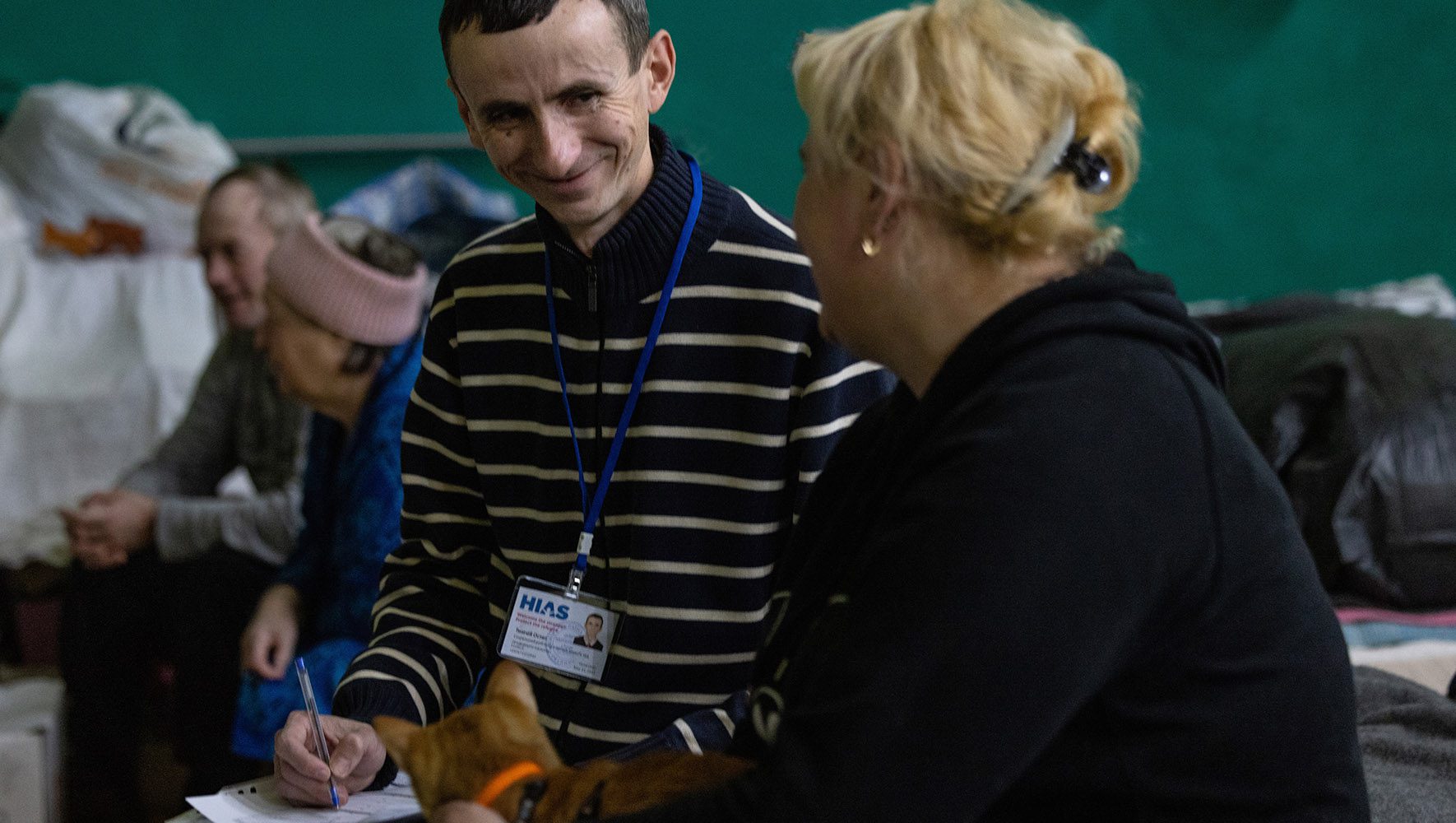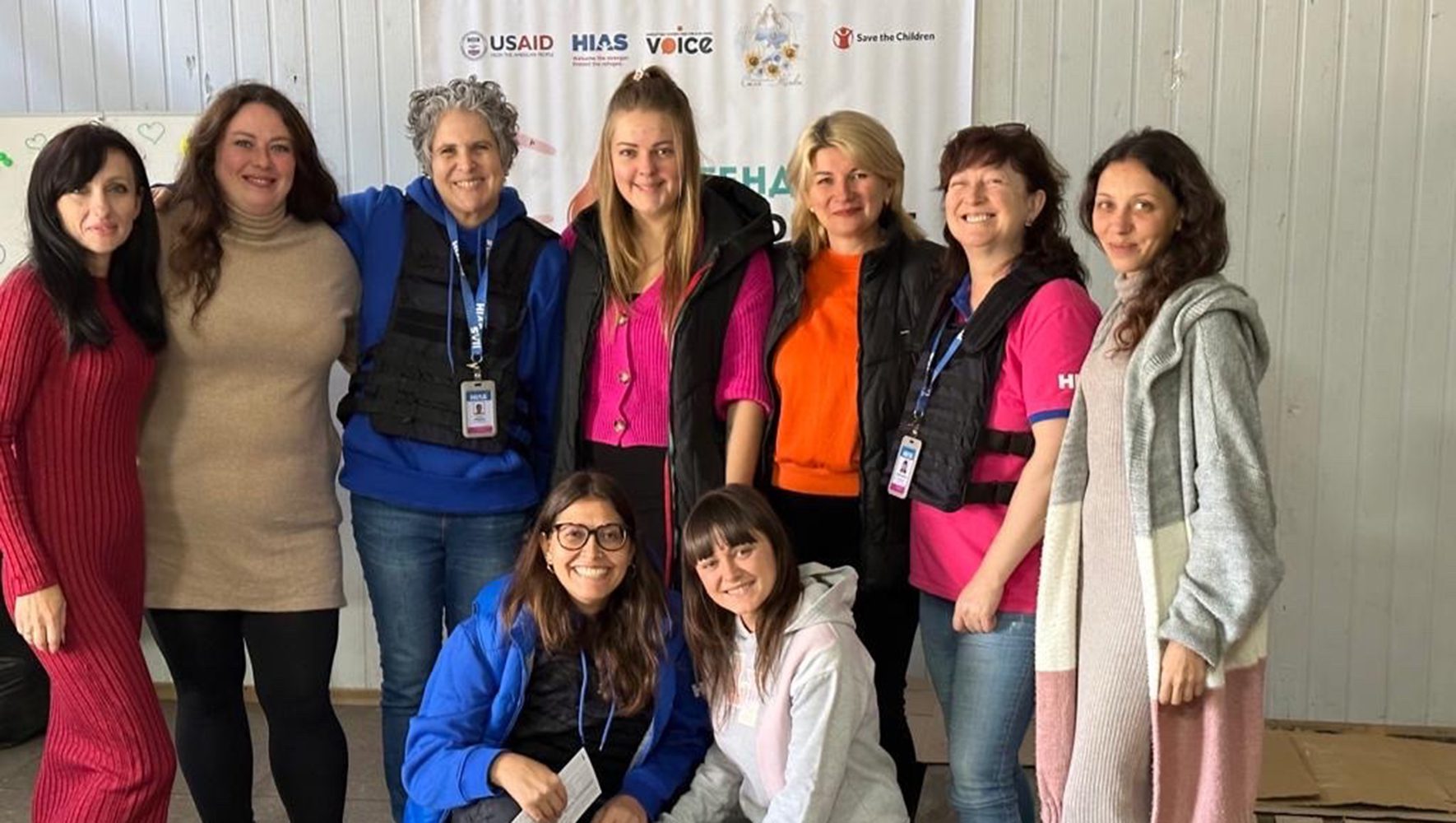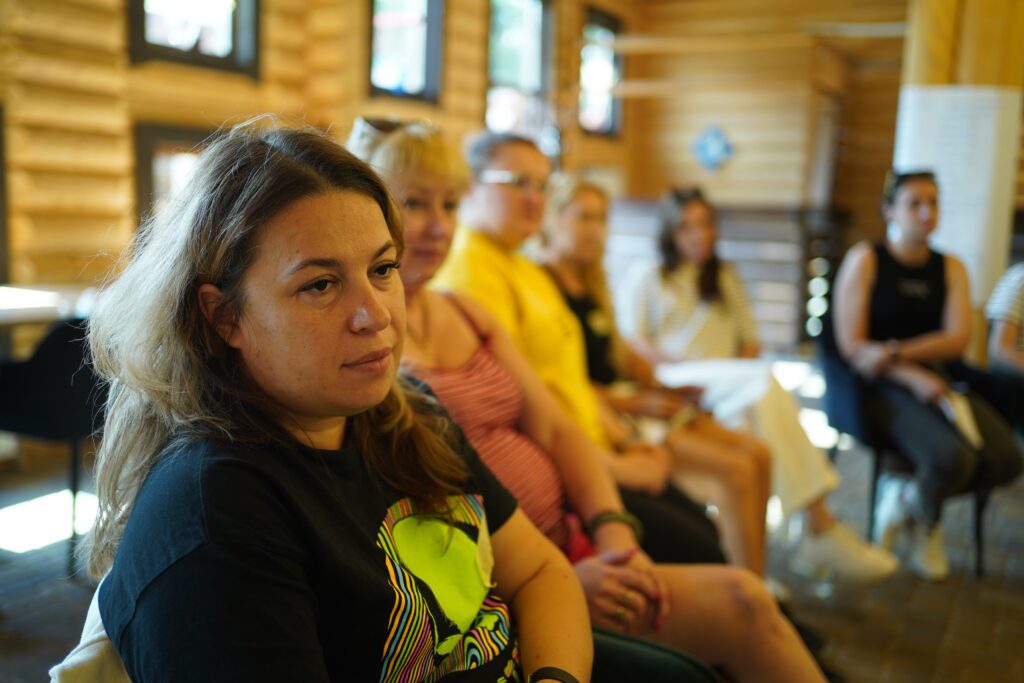
When Erika Alfageme arrived in Ukraine as HIAS’ inaugural country director in September 2022, she found herself with an extraordinary task: establishing a new country office in the middle of a major war and refugee crisis. Barely one year later, HIAS Ukraine has made its presence felt in the country: its programs have impacted over 125,000 people — many more when you include partner organizations.
Alfageme recently began a new post as deputy regional director for the Latin America and Caribbean (LAC), bringing her back to a region where the native Peruvian began her career with HIAS in 2019. “I’m grateful for HIAS to continue giving me professional opportunities, to value my work, and to continue allowing me to grow,” she said.
Alfageme recently spoke with HIAS.org about her experience in Ukraine.
When you arrived in Ukraine, what did you want to accomplish in this role?
I sensed a lot of possibilities: working in a new region, in a different environment, in an emergency response, and in a war context. There were so many things that made this an interesting opportunity for me. I was aware that we were going to start things from scratch.
My main objective was to make HIAS a concrete presence here, so we could say that yes, we are ready to do emergency response. That would mean that we could support the most vulnerable people in Ukraine. In order to do this, we needed a strong presence, robust operations, a talented staff, and clear objectives. Setting that up was my main goal. Not everything went as planned, of course.
What were some of the biggest challenges in the beginning?
Ukraine is a difficult environment to work in because of the war, and, to be completely honest, I don’t know if we were really prepared to respond to an emergency like this one. It was difficult making decisions and having clarity about what was going on given the budget we had. But we faced all those challenges, and now we’re more clear on what’s needed — and how to quickly respond to a situation like this.
There were so many things to organize after I got started. The recruitment process was also a challenge. It wasn’t easy to recruit staff. There are good professionals here, but few with experience in the humanitarian world.
How did you recruit people?
In different ways. We used the same platforms that other organizations here use, and relied on networks on the existing team. Sometimes, we opted for people with expertise in the private sector, because we knew we could train people on how to work in the humanitarian industry. Many of the people we interviewed said, “We want to do something for our country.” Sometimes it worked great, and sometimes it didn’t.
We were also delayed for security reasons. We weren’t always sure what HIAS’ risk appetite was. It took us one year to begin working in the East, when other organizations and most of the donors were, because we were concerned about security. Alas, the most vulnerable people are those near the front lines, which are in the east of Ukraine. But now we have an office there, we have partners, and we’re doing work.
Many of the people we interviewed said, “We want to do something for our country.”Erika Alfageme, former HIAS Country Director, Ukraine

Former HIAS Ukraine Country Director Erika Alfageme (third from L) meets with representatives from the organization Power of Women during a visit to Donetsk, Ukraine, on October 5, 2023. (Erind Tartari/HIAS)
What would you say has been HIAS’ great accomplishment in Ukraine? What are you most proud of?
The team that we built has been great. There has been of course a lot of pressure and stress, but we managed to get through it and to work together. I’m really proud of the team, and how we moved forward and started consolidating some of the departments in the organization. Without a good team, you can’t do anything.
What was something most people didn’t know about being in Ukraine?
Working in a war zone is completely crazy. Even when you’re not on the front lines, there’s a feeling that you never know what’s going to happen. Maybe there will be explosions, maybe we can’t do anything because we’re under alert, maybe we won’t have electricity, maybe there won’t be heat in the winter — those kinds of things.
It could be very stressful, but we had to continue working. Sometimes, for example, we’d have to spend four hours in a shelter — but would still have three calls with HQ. We always had to remind people elsewhere that we were in a war zone. There were sometimes air alarms all night, which prevented people from sleeping. So the next day, we often had to give people time to rest and relax.
Things have changed nearly two years into the war. Kyiv is different from how it was at the beginning. You can walk around more easily now, and sometimes you can imagine that you’re not in a war zone. But the war is always there.
What do you hope will be accomplished in the year to come for HIAS Ukraine?
We’re now in the process of defining our next stage. For HIAS Ukraine, there’s an incredible opportunity. The work we’ve been doing with local partners could allow us to become a leading organization in the areas of localization and working with women-led organizations. We’re starting to lead processes on GBV and capacity building, and providing added value to the partnerships that we’re established.
What we’ve learned through working with our partners has been incredible. Small, grass-roots organizations led by women can do remarkable things —with just a small amount of money, they can support a whole village just 10 miles from the frontline, working with explosions happening all around. What we want is to support those organizations and also give them the resources they need. Not just a budget, but also to help them build capacity. That’s where HIAS can add value.


